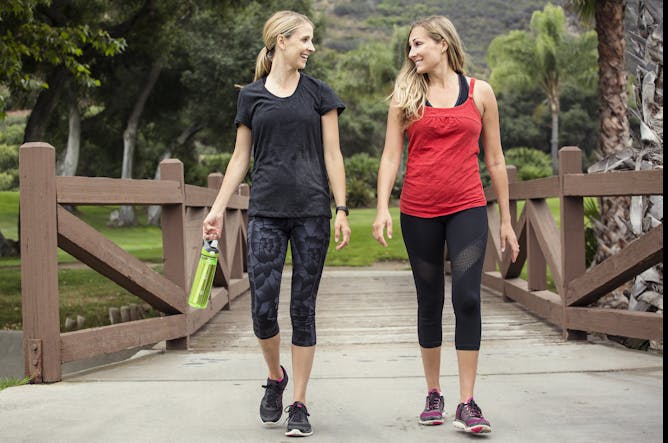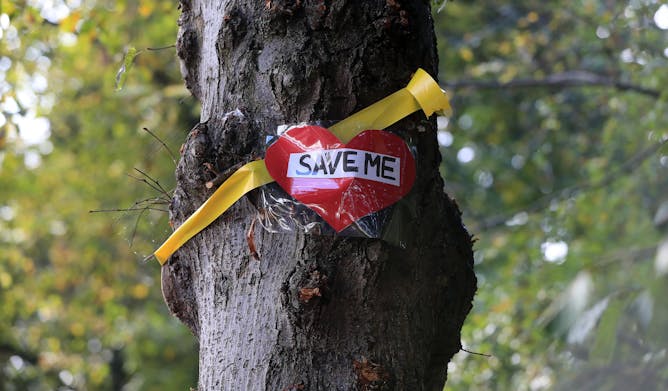|
|
|
|
I got into a heated debate with my friend Seeta the other day as we set out on yet another lengthy, socially distanced, wet and windy, pandemic-era walk around the park. She’s a fan of the hit Netflix series Bridgerton and was encouraging me to get into the period drama too. But, for some reason, I continue to resist. I told her that one of the turn-offs for me is the costumes. They just look so brassy and inauthentic! Seeta took the view that this is a laughably minor issue that shouldn’t prevent me from enjoying an otherwise truly excellent programme. She was too kind to say it but I could tell she thought I was being a snob.
Imagine my horror, then, upon reading a Conversation article that places me firmly on the wrong side of this argument and, indeed, the wrong side of history. In what is surely a delicious twist for the Seetas of this world, it seems that, when it comes to costumes, being historically inaccurate is, in fact, historically accurate. How deeply galling.
Seeta and I clocked up 13,542 steps on our walk, so despite our Bridgerton divisions, we worked together to surpass that hallowed 10,000-steps-a-day target. Heaven knows it’s a struggle to get there when living under lockdown. There are days when I barely scrape a few hundred. But if you, too, are finding it hard to hit this walking target, there is reassuring news. The idea that we should aim for 10,000 steps started as a marketing ploy for a particular brand of pedometer and doesn’t actually have much to do with reality.
Other key questions this week include: should we be switching up our face masks as the coronavirus mutates? Is learning the key to happiness? And, crucially, should grey squirrels go on the pill?
|
Laura Hood
Politics Editor, Assistant Editor
|

|
|

Alex Bailey/Netflix
Danielle Dove, University of Surrey
Writers did it themselves back in the 19th-century so modern period dramas should be cut some slack for trying to prioritise modern aesthetic tastes over historical accuracy.
|

The 10,000 step target has more to do with marketing than scientific fact.
Brocreative/ Shutterstock
Lindsay Bottoms, University of Hertfordshire
Even half the amount of steps shows health benefits.
|

Learning is rewarding.
BalanceFormCreative/Shutterstock
Bastien Blain, UCL; Robb Rutledge, Yale University
Receiving a pay raise will make you feel happier only if it was bigger than what you had expected. Why? Because it helps you learn.
|

Check your mask for fit, filtration and breathability.
Roman Samborskyi/Shutterstock
Fiona Henriquez, University of the West of Scotland; Mia Cousins Burleigh, University of the West of Scotland; William MacKay, University of the West of Scotland
Everything you need to know about fit, filtration and breathability.
|

Scooperdigital/Shutterstock
Jason Gilchrist, Edinburgh Napier University
Squirrel feeders laced with contraceptives could be used to suppress grey squirrels in the UK.
|

Peter Byrne/PA
Mary Gagen, Swansea University
Greenwashing spin is often used to justify chopping down mature street trees.
|
|
|
-
Gemma Ware, The Conversation; Daniel Merino, The Conversation
Plus what protesters in Belarus want to happen next. Episode 1 of The Conversation's new weekly podcast.
-
Emma Bielecki, King's College London
A french classic has had a thoroughly modern update, meditating on themes of class, race and colonialism.
-
Roberta Gilchrist, University of Reading
The Digs' archaeologists are closer to reality than the intrepid Indiana Jones, and that's refreshing.
-
Michael W. Charney, SOAS, University of London
After arresting Aung San Suu Kyi once again, the army is clearly not ready to relinquish control.
-
Michael Head, University of Southampton
Nearly half of Portugals COVID deaths occurred in January.
|
|
| |
Featured events
|

|
Wivenhoe Park, Colchester, Essex, CO4 3SQ, United Kingdom of Great Britain and Northern Ireland — University of Essex
|

|
East Road, Cambridge, Cambridgeshire, CB11PT, United Kingdom of Great Britain and Northern Ireland — Anglia Ruskin University
|

|
Online, Online, Oxfordshire, N/A, United Kingdom of Great Britain and Northern Ireland — University of Oxford
|

|
Online, Birmingham, Warwickshire, b15 2tt, United Kingdom of Great Britain and Northern Ireland — University of Birmingham
|
|
|
|
| |
| |
| |
| |
| |
|
|
|
|
|
|
|